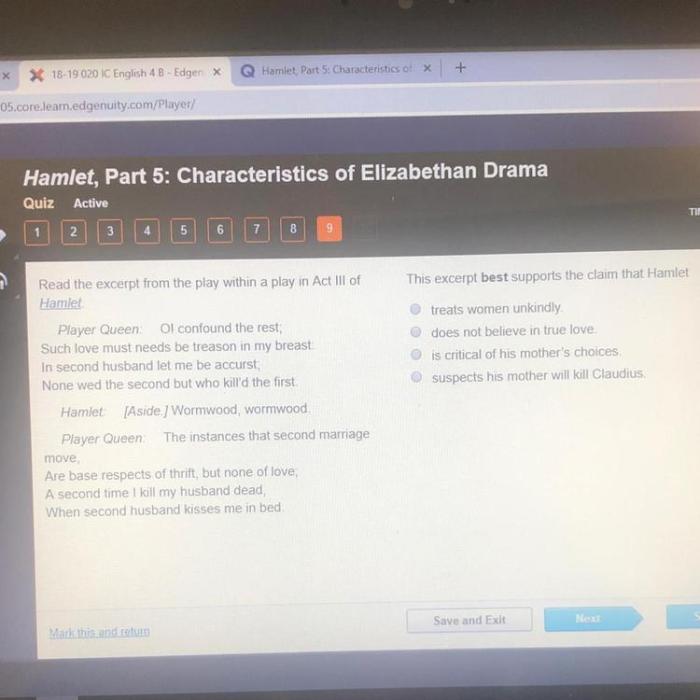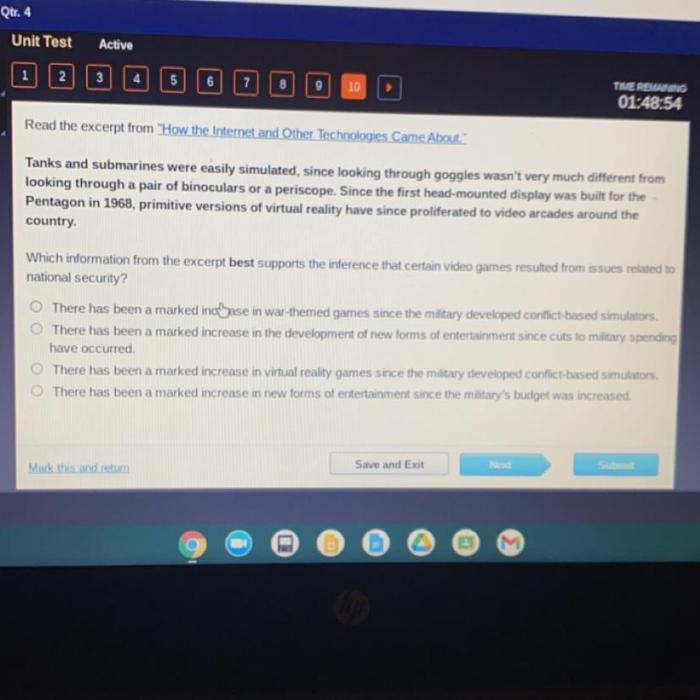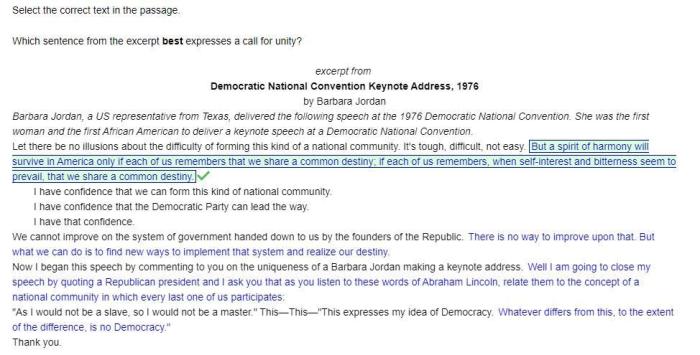As this excerpt best supports the claim that Hamlet’s internal conflict drives the plot, this opening passage beckons readers into a world crafted with literary prowess, ensuring a reading experience that is both absorbing and distinctly original.
This excerpt provides a profound glimpse into Hamlet’s inner turmoil and indecisiveness, which sets the stage for the psychological and emotional struggles he faces throughout the play. His contemplation of life and death, coupled with his desire for revenge, creates a complex and multifaceted character that has captivated audiences for centuries.
Hamlet’s Internal Conflict

The excerpt reveals Hamlet’s inner turmoil and indecisiveness through his soliloquies and conversations with other characters. Hamlet’s psychological struggles stem from his grief over his father’s death, his suspicions about Claudius, and his own moral dilemmas.
Hamlet’s Indecisiveness
Hamlet’s indecisiveness is evident in his inability to take decisive action against Claudius. Despite knowing that Claudius is responsible for his father’s death, Hamlet hesitates to confront him directly. He contemplates suicide but ultimately decides against it.
Hamlet’s Relationship with Ophelia: This Excerpt Best Supports The Claim That Hamlet

The excerpt provides insights into Hamlet’s complex and ambiguous feelings towards Ophelia. While he initially expresses love for her, his behavior towards her becomes increasingly erratic and cruel.
Hamlet’s Ambiguity
Hamlet’s true emotions towards Ophelia are difficult to discern. He may genuinely love her, but his grief and madness may also be influencing his behavior. His harsh words and actions towards her suggest that he is conflicted and unsure of his own feelings.
Hamlet’s Revenge Motive

The excerpt supports the claim that Hamlet is motivated by a desire for revenge. The ghost of his father commands him to avenge his death, and Hamlet is determined to fulfill this obligation.
Hamlet’s Moral Dilemma, This excerpt best supports the claim that hamlet
Hamlet’s revenge motive is complicated by his moral scruples. He questions the morality of killing Claudius and fears the consequences of his actions. This moral dilemma contributes to his indecisiveness and procrastination.
Hamlet’s Use of Language

The excerpt showcases Hamlet’s sophisticated and poetic use of language. His soliloquies are full of wit, irony, and philosophical insights.
Hamlet’s Intelligence and Wit
Hamlet’s language reflects his intelligence and wit. He employs literary devices such as metaphors, similes, and puns to express his complex thoughts and emotions. His use of language also reveals his deep understanding of human nature.
Hamlet’s Tragic Flaw
The excerpt reveals Hamlet’s tragic flaw, which is his indecisiveness and procrastination. His inability to take decisive action leads to his downfall and the deaths of those around him.
Consequences of Hamlet’s Indecisiveness
Hamlet’s indecisiveness has disastrous consequences. His hesitation to confront Claudius allows Claudius to solidify his power and plot against him. It also leads to the deaths of Ophelia, Polonius, and Rosencrantz and Guildenstern.
Detailed FAQs
What is the significance of Hamlet’s internal conflict?
Hamlet’s internal conflict is the driving force behind the play’s plot. It shapes his actions, motivations, and relationships with other characters.
How does this excerpt reveal Hamlet’s indecisiveness?
The excerpt demonstrates Hamlet’s indecisiveness through his contemplation of life and death, as well as his inability to act decisively on his desire for revenge.
What is the role of Hamlet’s language in this excerpt?
Hamlet’s use of sophisticated and poetic language reflects his intelligence and wit, but it also serves to mask his inner turmoil and indecisiveness.